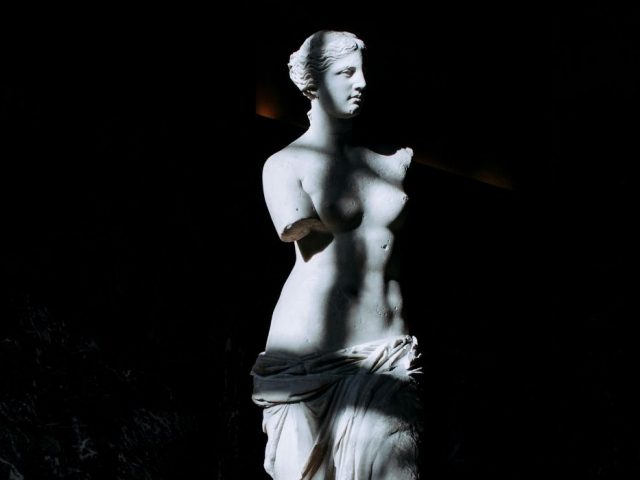It is good to have an end to journey toward; but it is the journey that matters, in the end. (Ursula K. Le Guin, The Left Hand of Darkness.)
Traveling and documenting one’s adventures has been a tradition for centuries. People who have made a mark in literary history, such as Ernest Hemingway, Jack Kerouac, and Mark Twain, have consumed countless words and written numerous books as a result of their wild and long journeys. But why do we travel? What is the purpose of traveling? In our new world where the doors of going from one place to another have been opened wide, we are now confronted with the question of why we embark on a journey, rather than where we will end up at the end of the journey.
In this article, we have listed 5 books that broaden our horizons, inspire and enlighten us, and, most importantly, have the potential to completely change our travel habits. Get ready to teleport to different worlds.
1- “The Art of Travel” Alain de Botton
“Journeys are the midwives of thought. Few places are more conducive to internal conversations than moving planes, ships or trains.”
We should begin by addressing the question of why we travel, and for this, we should start with the book “The Art of Travel” by the English writer and philosopher Alain de Botton. Botton’s book encourages us to question what we know, to forget, and to bring to light what we haven’t seen. He reminds us of what it means to embark on a journey. Botton also brings to light the things we don’t want to see. He shows us why the things we encounter are far from the fantasies we create before embarking on a journey. Most importantly, he reminds us of the value of noticing details without lists in our heads, without rushing. Moreover, with the book, we not only travel the world but also enjoy the journey through the eyes of artists such as Baudelaire, Wordsworth, and Van Gogh.
2- “The Alchemist” Paulo Coelho
Men dream more about coming home than about leaving.
Some books gain different meanings in your life at different stages, and every time you read them, you discover something new about yourself. Paulo Coelho’s book “The Alchemist” is exactly like that. Yes, there are few people in this world who haven’t heard of “The Alchemist.” Believe us, “The Alchemist” is a book that deserves all the praise and fame it has received. It tells the enchanting story of a shepherd from Andalusia who embarks on a journey to search for treasure and, in the end, discovers a treasure greater than he ever imagined – himself.
Most travelers are in search, whether it’s for the taste of adventure or the desire to see many museums. Coelho, on the other hand, shows us the opposite. He reminds us that the journey itself is what matters, and when we look up, we can find things much more valuable than we ever hoped for.
3- ‘‘Danube’’ Claudio Magris
“History shows that it is not only senseless and cruel, but also difficult to state who is a foreigner.”
Italian writer and translator Claudio Magris, with his book “Danube,” not only elevated his name to the top ranks in the list of the best contemporary Italian writers but also took home various awards. In his book “Danube,” Magris takes the reader on a journey along the Danube River, adorned with history and culture. He travels from the Bavarian hills to Austria-Hungary and the Balkans, visiting town after town along the river. Everywhere he goes, he awakens a different ghost: Kafka and Freud; Wittgenstein and Marcus Aurelius; Lukács, Heidegger, and Céline; Canetti, and many more. He introduces us to the colorful people of this diverse region.
“Danube” is more than just a simple travel memoir. Magris shows us what different cultures mean, how each journey brings its own ghosts, and the importance of searching for them, even the most obscure ones tucked away in a corner. Magris reminds us that wherever we go, we take a part of that place with us, and we leave a part of ourselves behind.
4- ‘‘The Geography of Genius’’ Eric Weiner
“Nothing kills creativity faster than a wall.”
The book “The Geography of Genius” by American author Eric Weiner is a bit different from the rest of the list. Eric Weiner takes us on a journey from Athens to Silicon Valley, from 20th-century Vienna to Renaissance Florence, to show how creative genius specifically developed. His witty and entertaining approach reminds us of the fun side of travel. He walks the paths where geniuses like Socrates, Michelangelo, and Leonardo once walked, exploring whether their spirits still linger somewhere. Weiner also asks the question, “What was in the air in these places, and can we bottle it?”
5- ‘‘Walden’’ Henry David Thoreau
“Live in each season as it passes; breathe the air, drink the drink, taste the fruit, and resign yourself to the influence of the earth.”
You might not have expected to see Thoreau on a list of travel books, especially with such a heavy book as “Walden.” “Walden” is considered one of Thoreau’s most important works. The book recounts Thoreau’s retreat to an area owned by his friend Emerson. Thoreau spends two years, two months, and two days living minimally by the shores of Walden Pond in Massachusetts, growing his own food and keeping a diary. At the end of this journey, Thoreau comes to the idea that people fill their surroundings and experiences with many unnecessary objects and emotions. However, he believes that if people simplify their lives, they can live in harmony with the universe and leave behind concepts such as poverty, loneliness, and weakness. It’s more of a philosophical book, but Thoreau tells us much more with the thoughts he explores. Firstly, he shows us that travel can take different forms, last for different durations, and manifest in various ways. Even a retreat can be a journey of self-discovery. He also illustrates how a simple life with minimal possessions and a solo journey with just a few clothes can be incredibly enriching. Thoreau teaches us to position ourselves away from society and from ourselves, to examine our surroundings as if we were discovering them anew.
Speaking of travel, don’t make your plans without reading the travel tips of Piri travelers.




